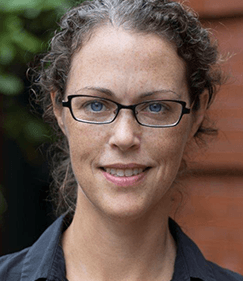
Associate Professor
Department of Environmental Health
School of Public Health
Boston University
mls@bu.edu
Fellowship Project: Prevalence and Risk Factors for Chronic Kidney Disease of Non-Traditional Etiology in the US / Methane Leaks and Tree Health
Madeleine Kangsen Scammell is an Associate Professor of Environmental Health at Boston University School of Public Health (BUSPH) where she also leads the Community Engagements Core of the Boston University Superfund Research Program and the Center for Research on Environmental and Social Stressors in Housing across the Lifecourse (CRESSH), a joint center between BUSPH and Harvard TH Chan School of Public Health.
Madeleine’s research includes the use of qualitative methods in the area of community-driven environmental health and epidemiologic studies. Prior to the JPB Fellowship, she was the Principal Investigator of an EPA STAR grant to study cumulative exposures to chemical and non-chemical environmental stressors in urban populations. This grant was a community-based participatory research project located in Chelsea, MA and conducted in partnership with the Chelsea Collaborative and the Chelsea Green Space (now Green Roots). Madeleine is also studying an epidemic of chronic kidney disease among agricultural workers in Central America, and a member of the CKD Research Group at Boston University. Her JPB Fellowship enabled her to examine CKD of non-traditional causes in the US via health care claims and administrative data.
Madeleine earned her Doctor of Science (DSc.) degree from Boston University School of Public Health in 2008. Since she joined the faculty, she has received two teaching awards for Foundations of Environmental Health and another for Environmental Health, Science, Policy and Law. During her fellowship Madeleine designed and began teaching a new course, Community Engaged Research: Theory, Methods and Applications
Research Expertise
Madeleine’s research involves a combination of quantitative and qualitative methods. She has an expertise in the area of environmental epidemiology and a particular strength is qualitative research design, data collection (conducting interviews and focus groups) and data analysis. She also has expertise and over 20 years of experience in community-based research, community engagement and research translation.
This information is accurate as of the fellowship year indicated for each fellow.